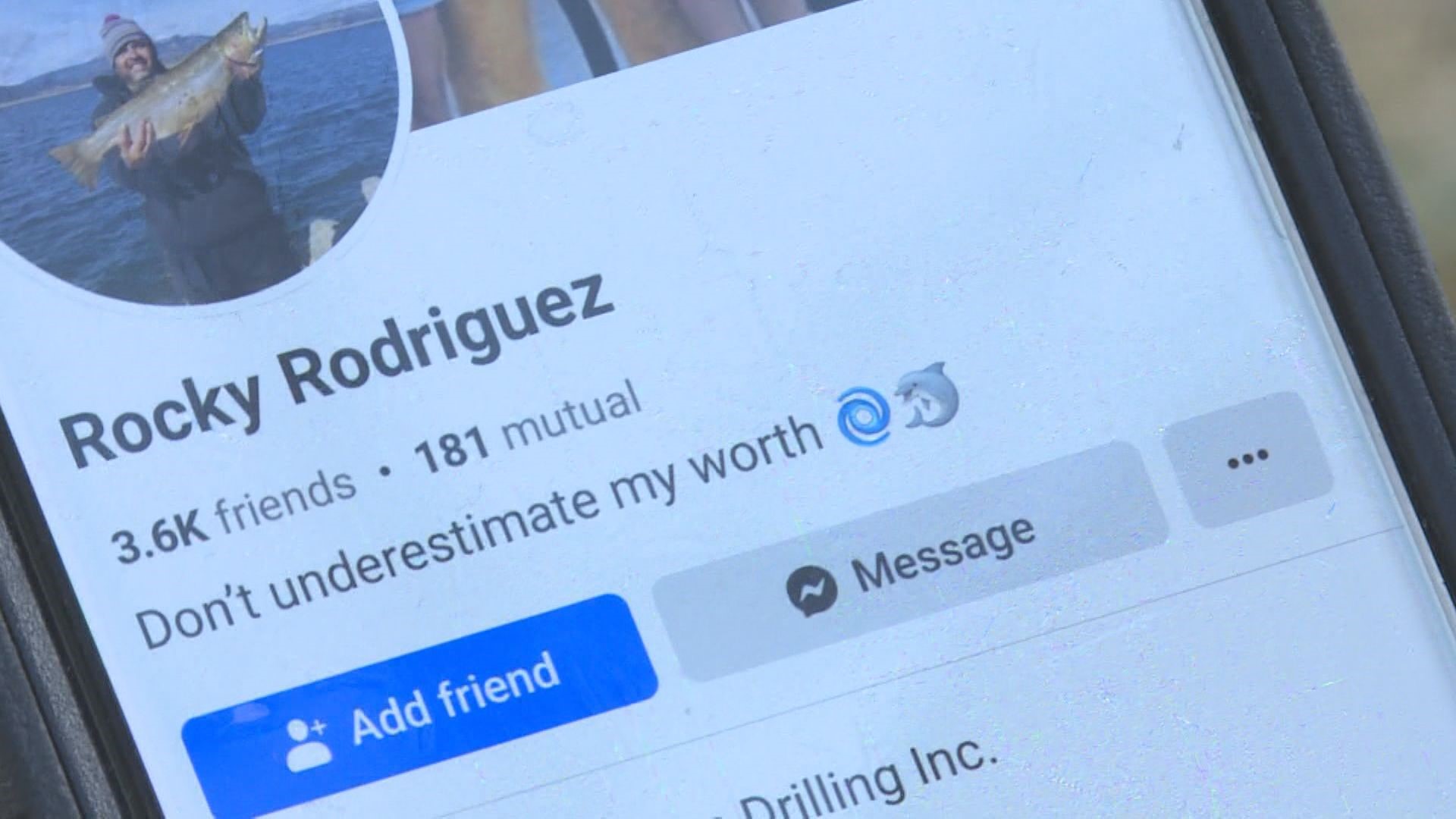ADAMS COUNTY, Colo — Rocky Rodriguez is living in the new era of identity theft.
In August of last year, Rodriguez woke up and tried to access his Facebook page, only to realize he’d been locked out. A scammer got in and changed the password and recovery email addresses. Then they started to pose as Rodriguez.
“All of a sudden I woke up and it was gone,” he said. “A week later they started posting crypto stuff and selling hats.”
Rodriguez said the scammer is using old photos to change his profile picture. He claims the scammer has reached out to other people on the app, trying to sell them merchandise — asking for money up front and giving the buyers Rodriguez’s home address, which was already in his messages from when he legitimately sold other items in the past.
“They're going through it getting deep, trying to be me,” Rodriguez said.
Since August, the scammer has posted pretending to be Rocky, saying that he made people money by trading cryptocurrency — sharing seemingly fake success stories with photos of smiling people the real Rocky Rodriguez said he has never met.
Rodriguez is the victim of a scam becoming ever more popular on social media: hackers targeting accounts that have been active for years simply because they have more social clout.
"It's a Facebook Marketplace scam,” said Steve Beaty, chair of the computer science department at MSU Denver and a cybersecurity expert. “Oftentimes, it can also be an ad scam."
“These accounts have been around for 10, 15 years — they're trustable. They've built up a following of friends, their friends trust them, essentially on Facebook. This has skyrocketed actually in the last two years. So it must have become very lucrative or people are realizing maybe that the other low hanging fruit has disappeared.”
Rodriguez said he has tried to email Facebook to get the account back, but had no luck. He said he even went as far as messaging Mark Zuckerberg on the platform — nothing. 9NEWS reached out to the media relations department for Facebook three times during the months of December and January and never heard back.
“It's pretty tough (to get an account back). And most people will say it's at least 60 days' worth of effort,” Beaty said.
“Facebook, in general, and other places, I'm not going to just pick on Facebook, don't even have a number you can call. So when your account is taken over, there’s nobody you can call.”
How to avoid a Facebook hack
Beaty says the best way to avoid a hack like this is to use long, complex passwords. Knowing how difficult to keep track of that would be, he suggests using a password safe — like the features on a web browser such as Google Chrome or Firefox.
“There's really no substitute for good passwording,” he said.
Beaty also recommends using different passwords for every site, as hackers can use data stolen from a number of data breaches to match passwords with emails. To see if you’ve been the victim of a hack, Beaty recommends this website where you can see if your email address has been included in breached data.
Do you have a consumer issue for Steve On Your Side to explore? Follow this link to send us a tip.
SUGGESTED VIDEOS: Latest from 9NEWS

